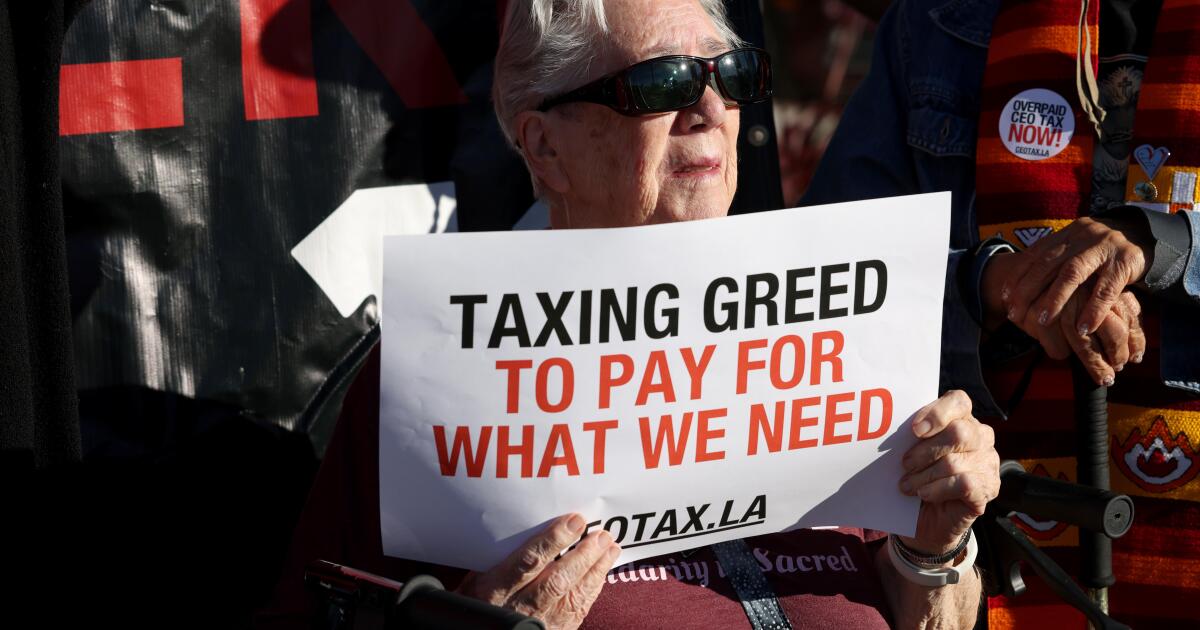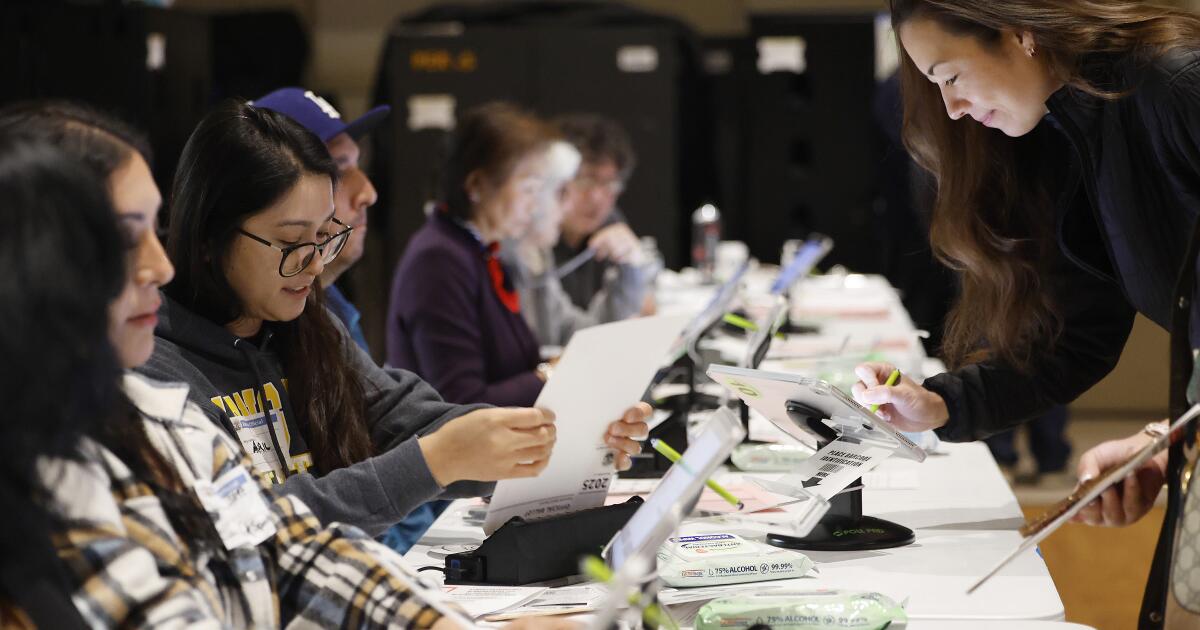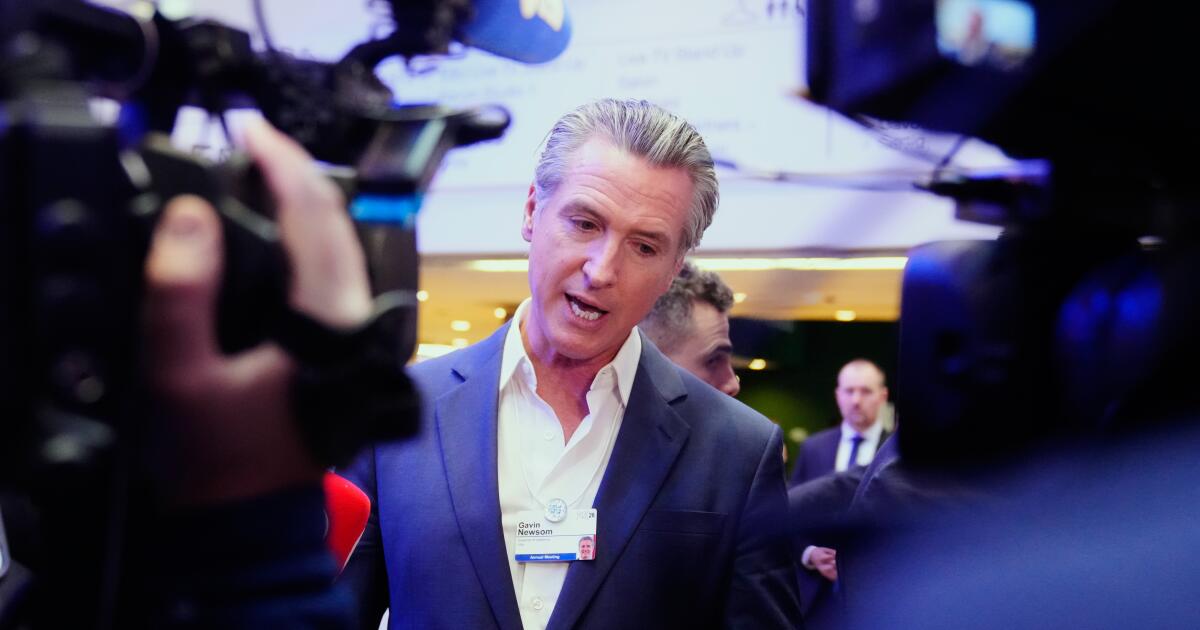The billionaire who wants to be California governor
SACRAMENTO — Tom Steyer must solve this dilemma: How does he convince financially struggling Californians they can trust a billionaire to be their governor?
Because, after all, the former hedge fund titan doesn’t exactly share their daily ordeal of scraping up enough money to pay for rent, groceries and gas in the run-down car.
And he doesn’t have any record in public office to point to. He’s trying to start his elective career at the top.
So, what’s the solution? Well, you can be a global celebrity like super-rich actor Arnold Schwarzenegger when he was elected in 2003. Or a Gold Rush tycoon like Leland Stanford back in 1861. Other than those two, there’s a long list of well-heeled rookie failures.
They include Republican Meg Whitman, who blew $144 million of her fortune losing in 2010. And Al Checchi, who spent $40 million of his own money getting beaten in the 1994 Democratic primary.
“Look, they didn’t have anything to say,” Steyer told me while sipping tea at a popular hangout near the state Capitol, specifically mentioning Whitman and Checchi. “They’d never done anything. Not like I’ve done for 14 years.”
Steyer, 68, who lives in the San Francisco Bay Area, touts his record of funding and promoting progressive causes, including successful ballot campaigns that raised tobacco taxes, closed a major corporate tax loophole and beat back oil industry efforts to kill climate fighting laws.
“I could give you 10 things I’ve done about environmental sustainability and economic justice,” he said.
“Why trust me? Because I’ve gotten results. And I don’t owe anybody anything.”
The Democrat spent $12 million on TV ads last year pushing Gov. Gavin Newsom’s Proposition 50 that allowed the Legislature to gerrymander congressional districts aimed at gaining five more Democratic seats in California.
Being a billionaire allows Steyer to buy all the TV spots he wants. He already has popped for $27 million worth running for governor.
But astronomical wealth comes with a political price.
“California voters do not cotton to some rich guy who has never spent a day in office but looks in the mirror one morning and suddenly sees a governor of California,” says veteran Democratic strategist Garry South.
So, in his campaign TV commercials, Steyer wears casual backyard barbecue garb trying to look like Mr. Average, but with a populist agenda.
“I’m the billionaire who’s going to take on the billionaires,” he says.
That sounds counterintuitive, and I’m skeptical about how well it sells.
Steyer knows he sorely needs labor support to seem credible among the working class. That’s why he recently joined rallies for striking teachers in San Francisco and healthcare workers in San Diego.
He has scored endorsements from the California School Employees Assn. — a union representing school staff — and the California Nurses Assn.
Nurses are backing Steyer largely because he has embraced their No. 1 goal: a single-payer, state-run health insurance system.
They’ve attempted to push that in Sacramento for years and failed. And for good reason.
Single-payer would cost the state barrels of money it doesn’t have. Moreover, it would replace not only private insurance, but popular federal Medicare and the state’s Medi-Cal program for the poor. The federal government would need to agree. Fat chance.
I asked Steyer whether he really believes the state bureaucracy is capable of handling such an ambitious undertaking.
“We’re going to have to get back to having a government that works,” he replied, in what sounded like a knock on Newsom and his predecessors.
How could he make a single-payer system work? “God is in the details,” he answered, a phrase he frequently uses. Translation: “I don’t know.”
“We’re going to work through it. That’ll take at least three years… But we’re going to have to do it…. Healthcare costs have been escalating for a very long time. And they’re eating up the [state] budget.”
After Steyer left hedge fund investing, he became an ardent crusader for clean energy and fighting climate change. It was his core issue running for president in 2020, when he spent $340 million before giving up.
But these days, he barely mentions climate. The better politics du jour is advocating for “affordability” — especially affordable housing.
Steyer said he doesn’t have a “silver bullet” for lowering housing costs. He has “silver buckshot” — a scattergun of solutions for boosting housing supply, plus rent control.
He’d shorten the time for issuing construction permits, require rezoning to develop vacant land, tax unoccupied housing left off the market and build higher — more like in New York’s Manhattan, where he was raised.
“What we’re doing is sprawl,” he said. “And what sprawl leads to is an awful lot of commuting, a lot of driving.”
That’s been a problem for generations, I noted. Suburban ranch-style housing is the California way. “People can change,” he said. “I think people want to.”
I asked him about the slow-poke bullet train project that’s costing four times original estimates.
“Of course, I’m in favor of high speed rail,” he said. “But good grief. We’ve been working on this for an incredibly long time and spent an incredible amount of money. As far as I can tell, we haven’t built anything. If we’re going to do high-speed rail, we have to build it at a reasonable price. And we haven’t been able to do that.”
Might he abandon the project? “I want to look at it,” he said.
The odds are against him ever getting the opportunity.
But the odds aren’t exciting for any candidate in this ho-hum contest.
Steyer is running in the middle of the pack, based on polls. He has hired the strategists who managed Democratic Socialist Zohran Mamdani’s victorious campaign for New York mayor.
There’s no front-runner for governor. But Rep. Eric Swalwell (D-Dublin) has some momentum. He recently was endorsed by Sen. Adam Schiff. And he’ll also soon be endorsed by influential former House Speaker Nancy Pelosi, I’m told.
Voters will do their all-important endorsing in the June 2 primary.
What else you should be reading
The must-read: In 50-year fight to protect California’s coast, they’re the real McCoys, still at it in their 80s
CA vs. Trump: Trump, California and the multi-front war over the next election
The L.A. Times Special: Who pays for Newsom’s travel? Hint: It’s not always taxpayers
Until next week,
George Skelton
—
Was this newsletter forwarded to you? Sign up here to get it in your inbox.





